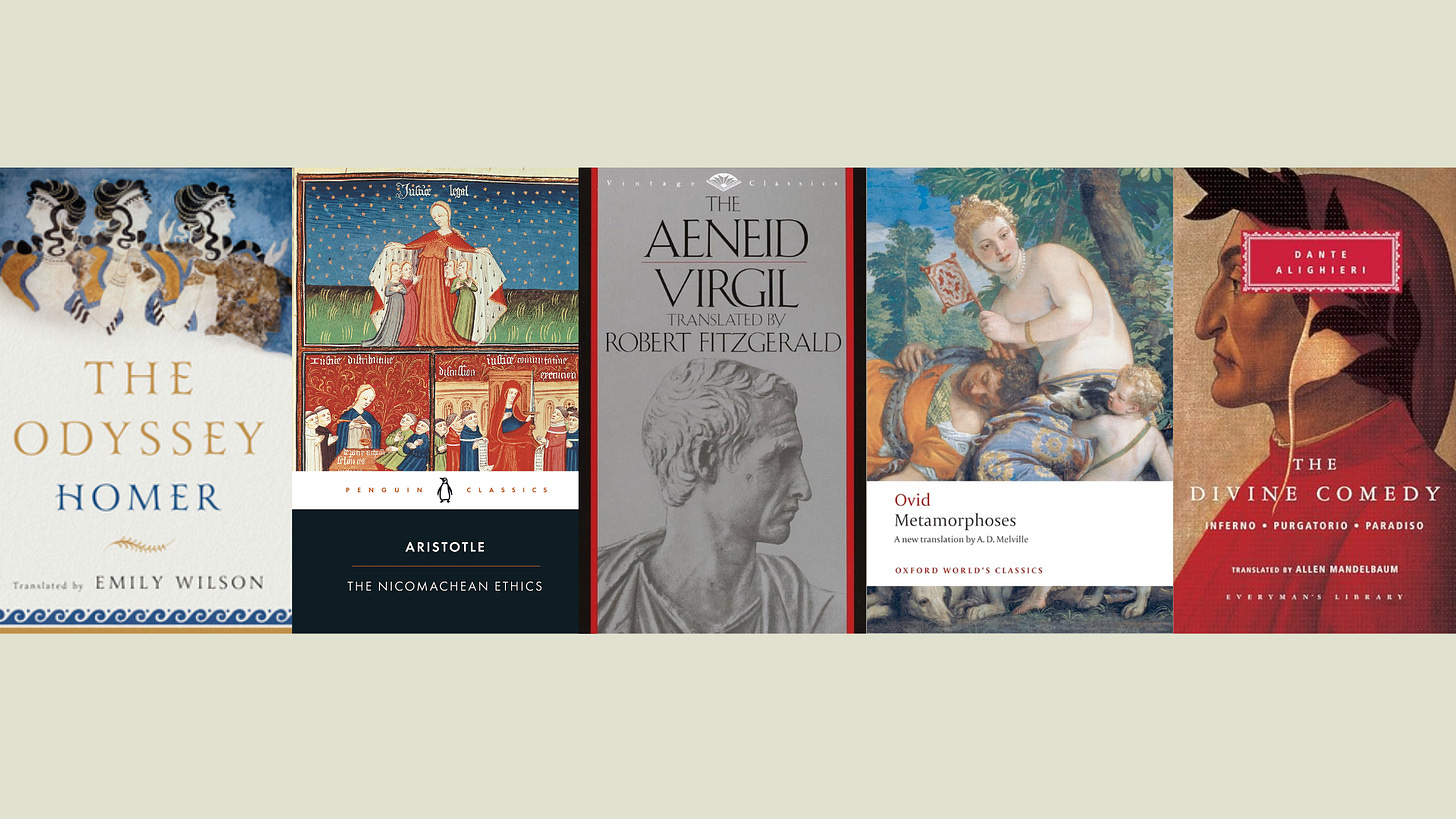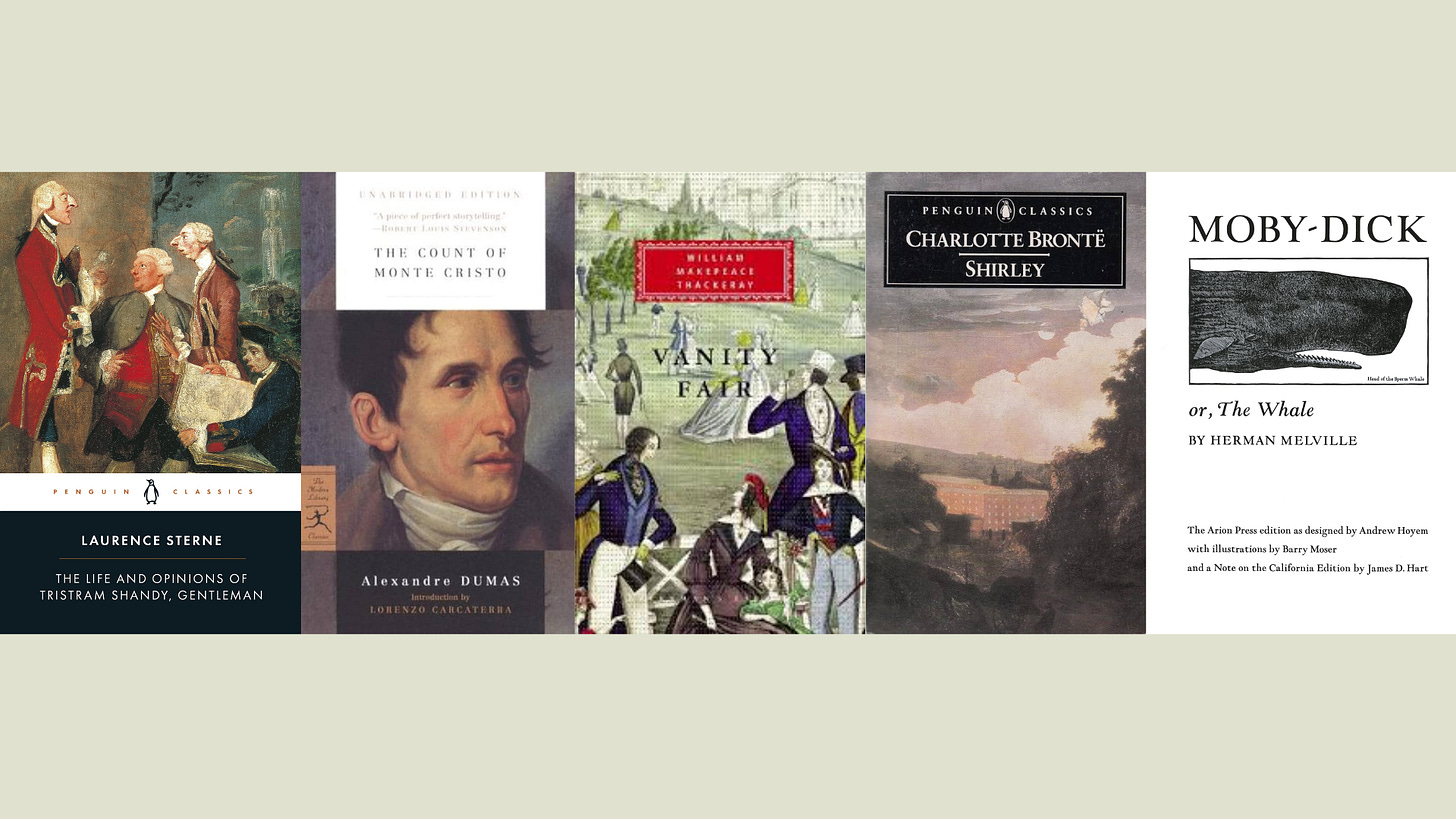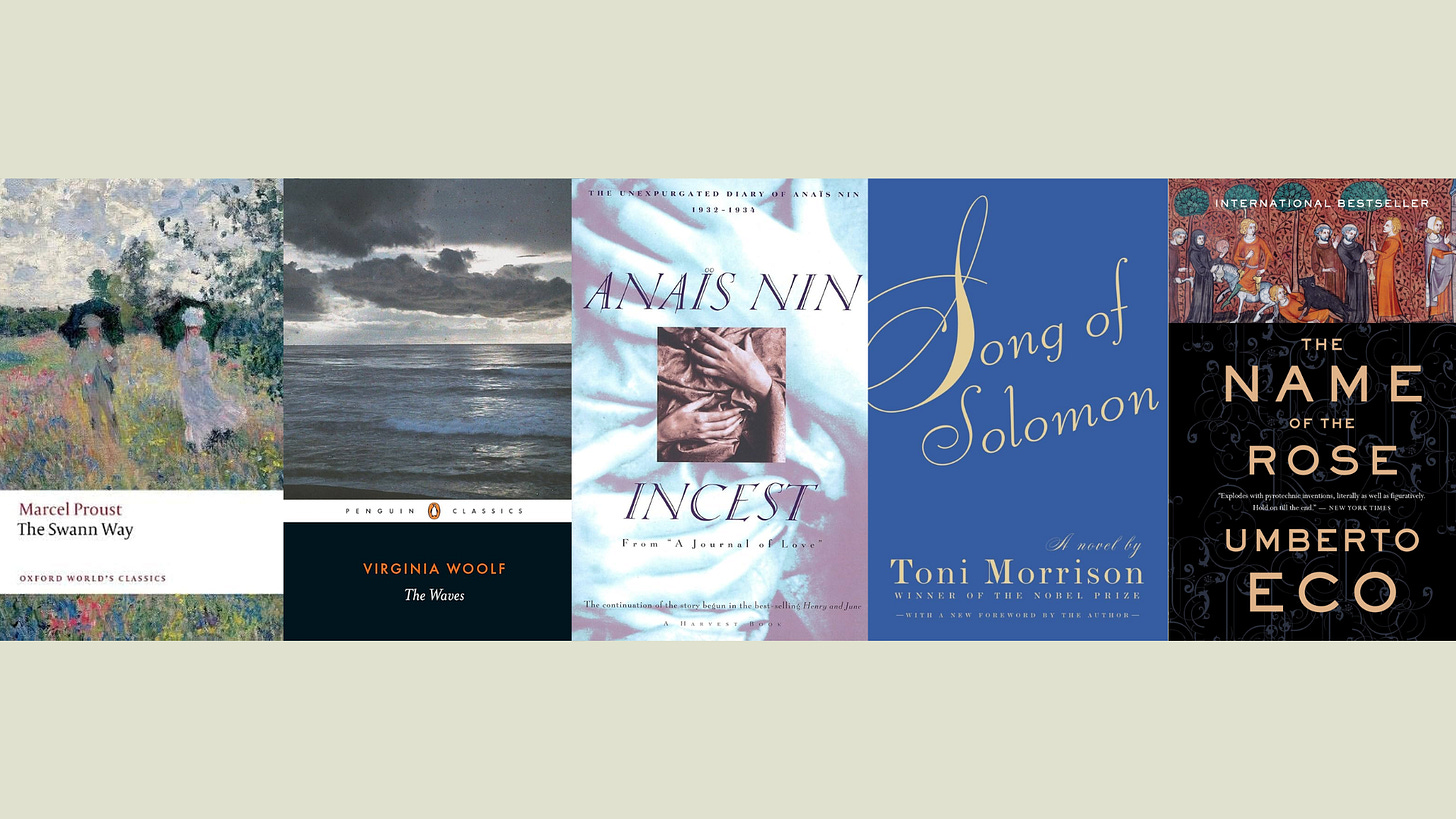I’m 26 now (my birthday was yesterday), officially began my late twenties, and here comes the final countdown for a new decade: the thirties. People make it sound so scary, almost as if you’re approaching death, which is obviously ridiculous and reveals a lack of imagination; I have so many plans for my thirties. One of my resolutions (can I make resolutions for my birthday? Since it’s my personal New Year?) is to finally overcome my fear of getting old. I think I’m really close. Especially because life has been pretty nice. To make this passage of time more exciting and less fatalistic, I created a little challenge for myself. It’s worth mentioning that I maintain the feelings and thoughts I shared on my birthday last year:
The End of Spring
‘It is unimaginably hard to do this, to stay conscious and alive in the adult world day in and day out.’
I have four years and an infinite amount of literary ambition, so I made a list of books I hope to read before turning thirty. I want to arrive at my thirties as wise (or at least well-read) as I can. I’m intentionally leaving some books out for when I’m older (like Brothers Karamazov) because not only would it be devastating to discover in 10 years I have no great books left to read, but also I believe some works can be better understood with age.
_THE LIST_
The Odyssey - Homero
For obvious reasons since everything ever written references Homer in some way. I’m trying to persist with The Iliad (I’m not the biggest fan of Greek classics sorry guys) and I’m hoping this year I can reach the end.
The Nicomachean Ethics - Aristotle
Philosophy is a pyramid scheme. Basically everything a philosopher writes agrees or disagrees with what another philosopher has written before, and if you follow this chain back in time, you'll arrive at Plato and Aristotle. I read Plato's The Republic this year and, although I didn't agree much with his perspective, it was a great reading experience and an important addition to my repertoire. So nothing could be more appropriate than reading Aristotle next, particularly The Nicomachean Ethics, since the text centres upon the question of how to best live, a theme previously explored in the works of Plato.
Aeneid - Virgil
Another canonical work that has the same status as The Odyssey and is therefore essential for understanding the foundations of Western literature: without the Virgilian epic, there would be no Orlando Furioso, Paradise Lost, The Lusiads, among other great classics that have moulded much of our literary culture. Besides, I hate not picking up references, and dozens of works refer to the misadventures of Aeneas and Dido.
Metamorphoses - Ovid
Beginning with the creation of the world and ending with the glorification of Augustus, Ovid narrates many of the most important myths and legends of ancient Greece and Rome, creating a sort of anthology of classical mythology. Again, much of Western literature was influenced by it, from Shakespeare to modern retellings by authors like Roberto Calasso and Ali Smith.
The Divine Comedy - Dante Alighieri
I also can’t believe I haven’t read this one yet. It’s absurd. But for some reason, I haven’t found the time to dedicate myself to this literary enterprise. It’s on my priority list, though, maybe I’ll do it next year…
The Complete Works of Shakespeare
This is an obvious one. I have about 20 plays left to read in four years—totally manageable. I can’t become a full adult without having read all of Shakespeare (I’m not saying this is required for every adult, but for me it absolutely is).
Essays - Michel de Montaigne
As a writer who prefers non-fiction and contemplates the title of essayist ever since reading (and identifying with) Brian Dillon’s Essayism, it is only fair that I should be familiar with the man who invented the essay. Also, those who have read it praise his wisdom, and I think I could use some wisdom myself.
Don Quixote - Miguel de Cervantes
A dream of mine is to learn enough Spanish to read Don Quixote in its original form. I don’t know if I can manage that in four years, but who knows where my academic life will lead me. Another incredibly important work in the Western Canon, besides being super entertaining (according to my sources).
Faust - Goethe
I’m fascinated by the concept of a Faustian pact, and I would like to write something using this trope someday. So it’s only fair that I should read Goethe’s major work as soon as possible; I’m very interested in the theological and philosophical implications of the pact, and I should like to research it.
Wilhelm Meister's Apprenticeship - Goethe
This gigantic novel has been called the first Bildungsroman and has had a tremendous influence on the history of the German novel. The story centres on Wilhelm, a young man living in the mid-1700s who strives to break free from the restrictive world of economics and seeks fulfilment as an actor and playwright. Apparently, the book was instrumental in the development of the “world literature” idea, and it’s required reading for Comparative Literature studies (something I’m interested in, professionally).
The Life and Opinions of Tristram Shandy, Gentleman - Laurence Sterne
I’ve seen some people saying this book was ludicrous, difficult, and brilliant, and I’m very curious to know why. Written in the 18th century, when the novel form was still coming together, this book apparently plays with the limits of literature and language, since back then, authors didn’t know that they couldn’t do certain things. The book is narrated in the first person, beginning with the main character’s conception (literally, with his parents in bed) and following him throughout his life. I have a feeling I’m going to love it.
The Count of Monte Cristo - Alexandre Dumas
The only reason I haven’t read it yet it’s because of its size. I know the story well and I adore it — in my opinion revenge plots are always the most fun. I don’t know a single person who has read The Count of Monte Cristo and disliked it. This one is on my priority list!
Vanity Fair - William Thackeray
This book has been sitting on my shelf for ages, but I haven’t dared to read it yet, also due to its huge size. Don’t get me wrong, I love big books (I’ve even read War and Peace for fun), but they’re definitely a commitment, and I’m not always in the mood to be absorbed in a story for two months (usually how long it takes for me to finish a book with more than a thousand pages). Vanity Fair is one of the most important works of Victorian Literature, a satirical novel about upper-middle-class life and manners in London set during the Napoleonic wars.
Shirley - Charlotte Brontë
I've read all the Brontë sisters' books except this one, and I would certainly make it my goal to complete their work before I'm 30. I have mixed feelings regarding Charlotte’s books and the author herself (I have the impression we would hate each other if we met), but she always delivers good writing and deep feelings, which is good enough for me.
Moby Dick - Herman Melville
Another self-explanatory one. I must say I’m a little afraid of this book, and having heard so many weird things about it, I genuinely have no idea if I will love it or hate it, which is why I’m so eager to find out for myself. Do I have to read the whole bible to understand it?
Madame Bovary - Gustave Flaubert
I hope I’m wrong, but I have a feeling I’m not going to like this book, and I want to read it to find out empirically. I’ve read a long essay once about Flaubert and how awfully critical (and mean) he was; I’ve maintained a bad impression of him ever since. People usually compare Madame Bovary to Anna Karenina (the best novel ever written), so I’m already negatively biased. How I wish I didn’t know the ending!
The Idiot - Fyodor Dostoevsky
I’m one of the few people who prefer Dostoevsky’s short works to his long ones. Maybe it's because I've only read Crime and Punishment among his long books, and I didn't like it that much. Notes from the Underground, on the other hand, is one of my favourite books. So I want to give long books a second chance, and among the options, I think The Idiot is one I might actually like.
Resurrection - Leo Tolstoy
Tolstoy — as a writer and yet mostly as a person — is endlessly fascinating to me. He is one of the dead people I’d like to have dinner with. He wrote three major novels: War & Peace, Anna Karenina and Resurrection; I've read two of them, and the latter is the one I need to complete the set: a story of a nobleman's attempt to redeem the suffering he caused to a peasant girl who ends up a prisoner in Siberia. Reading these three is like collecting a literary milestone. I want to know everything there is to know about Tolstoy, and even though he pisses me off I trust him; I want to be in his Russia again.
The Portrait of a Lady - Henry James
I've only read two novellas and one short story by Henry James, so I haven't formed a strong opinion about him yet, although I really enjoyed them. Many authors I admire revere James; I want to learn from him and see what these authors see. I think The Portrait of a Lady has as much potential to break my heart (since it's a classic story about a bad marriage and how women have a worse life) as it does to give me a writing masterclass, and I'm so ready for that.
Ulysses - James Joyce
I was very prejudiced and had no desire to read Ulysses until I came across Dubliners and was completely captivated by Joyce's writing. I know these two books are very different, and I'm still going to read The Portrait of the Artist as a Young Man this year, but now I'm convinced that he's not just some crazy modernist trying to create something difficult for the sake of being difficult (learning to appreciate The Waste Land also helped me change my perspective). I haven't started Ulysses yet because I need to read The Odyssey first (yet another example of the pyramid scheme in literature).
Swann’s Way - Marcel Proust
I would like to read all of In Search of Lost Time one day, but I have no idea what it is about or if it is for me. I don’t read much French literature, and it’s something I want to change about my literary habits. I really want to like Proust so I can have a project and read the other six books in the series during my thirties.
The Waves - Virginia Woolf
I've yet to find a work by Woolf that truly resonates with me, and I have the impression that this is the book that will change that: an introspective story about six friends dealing with grief. I have struggled with Woolf's writing, which is why I want to read her other works in preparation, but despite this, I feel it's a worthwhile challenge. Stream of Consciousness is as difficult to write as it is to read.
The Unexpurgated Diaries of Anais Nin
I fell in love with Anais Nin after reading Henry and June last year, the first volume of six from her Unexpurgated Diaries, which were posthumously published. I’m really interested in her life and relationships, in how she thinks and processes her feelings. And as someone who loves writing diaries, I’m always fascinated by the diaries of others.
Song of Solomon - Toni Morrison
I’ve never read Toni Morrison, and from what I’ve seen online, Song of Solomon seems the one I’d enjoy most. The book relies on biblical and mythological imagery (as the title suggests), beginning on the day of the birth of Macon Dead, Jr. (known as Milkman), son of the richest black family in a mid-western town; on the same day, a man in blue silk wings attempts to fly from a steeple of the hospital, as if he were Icarus. We then follow Milkman’s life and family through the years, and I sure love a modern Bildungsroman.
The Name of the Rose - Umberto Eco
Yet another “I can’t believe you haven’t read this” moment. As someone who spent her adolescence reading Dan Brown due to the religious mysteries and allusions, I should have read this one sooner: monks, medieval italy, theological discussions and a muder investigation; it’ like this book was written for me. Still, better late than never.
Seminar 6: Desire and Its Interpretation - Jacques Lacan
As of late, I’ve been getting more and more interested in psychoanalysis (I’d like to go to an analyis myself if it wasn’t so expensive); I’ve read a bit of Freud and I want to take the next step and read Lacan. I’m up for the challenge. Psychoanalysis is a great asset to have when you’re writing literature or about literature.
Gravity and Grace - Simone Weil
I read Weil’s War and the Iliad last year and it was one of the best books of 2024. She is a brilliant thinker and writer, and now I want to delve into her philosophy. Gravity and Grace is a posthumous compilation of the writings in thirteen personal notebooks of the author, who died quite young of voluntary starvation. This book contains notes that Weil made to herself, which refer to Marcus Aurelius' Meditations eudemonia, composed of “spiritual exercises”. It is here that she develops what she means by ‘attention’, and where she defends atheism as a kind of purification in the intellectual journey.
The Books of Jacob - Olga Tokarczuk
A book about a messianic figure, full of theological and philosophical questions. You may sense a pattern of my tastes here. I’ve never read any Tokarczuk because I don’t read much contemporary literature, yet she’s one of the few living authors who interest me (and I don’t mean that in a pretentious way, I just don’t want to read any story in which cellphones, computers or social media is involved; it’s a pet peeve). The Books of Jacob is set in the 18th century Europe, and it fictionalizes the story of a real man, Jacob Frank, who caused a stirr in the religious scene and founded “frankism”.
Sexual Personae - Camille Paglia
Hot take, but Camille Paglia is my favourite academic. I like her precisely because she is insane and biased. I’ve watched many of her lectures and interviews on YouTube and read a few essays here and there, but I still need to read her most important work: Sexual Personae, a book about art theory based on Nietzsche’s The Birth of Tragedy, in which Paglia argues that the primary conflict in Western culture is between the binary forces of the Apollonian and the Dionysian. She uses this approach to analyse many artists and writers, from Botticelli to Wilde.
Solenoid - Mircea Cărtărescu
A book I don’t know much about, except that people in literary circles praise it constantly. Set in late 1970s/early 1980s Communist Romania, including long lines for groceries, the absurdities of the education system, and the misery of family life, Solenoid is based on the author’s own experience as a professor. I don’t want to know more because I want to be surprised, and it’s not always you can have a fresh experience with a book.
Even if I don’t read all of them, I know I’ll have fun trying to. Have you read any of those? Have you added any of those to your list? Let me know!












I read The Waves by Virginia Woolf every spring - it's my favorite piece of fiction/poetry. It's not everyone's cup of tea but I find it much more accessible and instantly engaging than some of her other more recc-ed works! This book has taught me so much about myself, I hope it brings you something special. Also Song of Solomon is another one of my favorites. Enjoy!!
"Philosophy is a pyramid scheme" - so controversial, so brave, so true